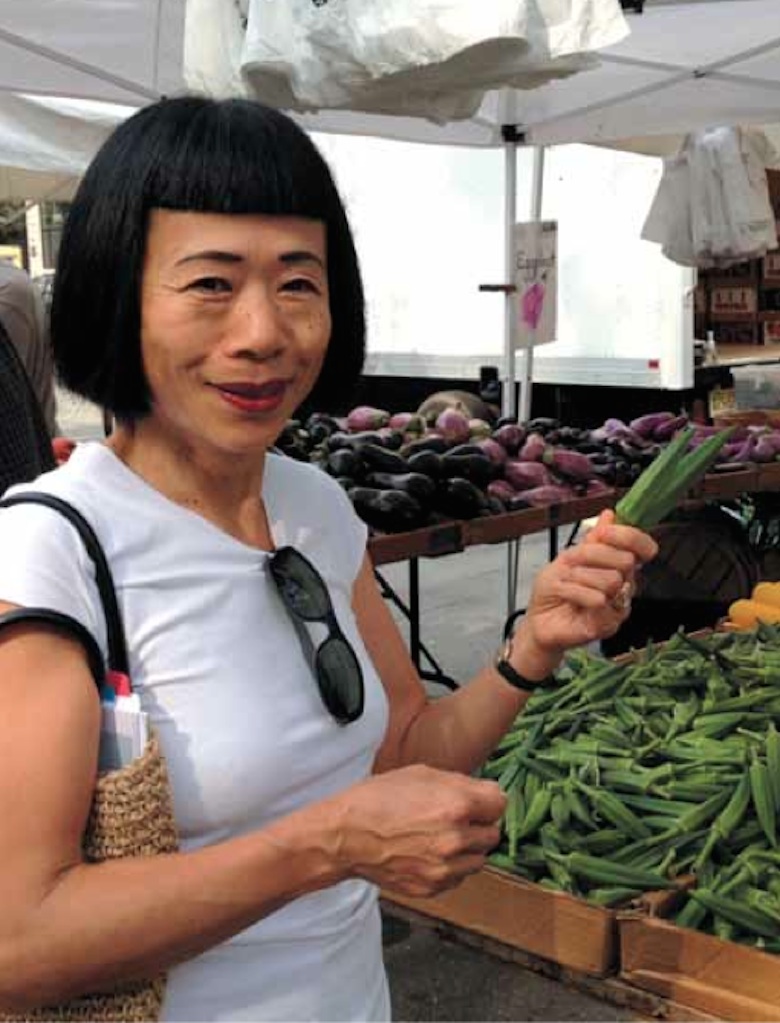 Call it New American fatigue. The emerging disorder among the sustainable set strikes at the height of the fall harvest season, when some locavores break out in a cold sweat at the sight of yet another kale salad, roast chicken or apple crisp.
Call it New American fatigue. The emerging disorder among the sustainable set strikes at the height of the fall harvest season, when some locavores break out in a cold sweat at the sight of yet another kale salad, roast chicken or apple crisp.
For those suffering from this condition, Hiroko Shimbo is here to help.
She’s the longtime instructor of the French Culinary Institute’s Japanese cooking essentials course, and her first two books, The Japanese Kitchen and The Sushi Experience, considered scripture for both professional chefs and home cooks, feature dishes like fresh bamboo shoots tossed with sansho pepper leaves, or shabu shabu made with well-marbled Japanese-style beef.
But her third book, out this fall, was sparked by an epiphany: Instead of teaching authentic Japanese recipes that require New Yorkers to ferret out imported ingredients, why not apply Japanese techniques to our own harvest? The new book, aptly titled Hiroko’s American Kitchen: Cooking With Japanese Flavors (Andrews McMeel), features local produce, from corn and peaches to collards and parsnips, prepared Japanese style.
At the core of the book’s 125 quick, deeply flavored dishes are two stocks and four “mother sauces” Shimbo devised out of widely available Japanese staples (soy sauce, mirin, miso and rice vinegar). Inspired combinations include cabbage-radish slaw with white sesame seeds; and eggplant and kabocha squash simmered with the traditional dried skipjack tuna and kelp broth known as dashi.
To develop the book’s recipes, Shimbo needed only to walk two blocks from her 15th Street loft to the Union Square Greenmarket. Adirondack red potatoes at S&SO’s sprawling stand are perfect for her one-pot dish of potatoes, miso and bacon, while crispy akane apples from Samascott Orchards, which she sautés in butter, are a key component of her miso-yogurt-lemon marinated chicken.
The project’s goal, explains the pixie-ish Shimbo, was “to marry Japanese ingredients, techniques and traditional dishes with a rich array of seasonal American ingredients.” One product of that love match is a salad of crumbled tofu, dashi stock, soy and honey, all tossed with one of her Greenmarket favorites: Tuscan kale.
Photo Credit: Nancy Matsumoto
__________________________________________________________
Spicy Kale Miso Soup
Adapted from Hiroko’s American Kitchen
Makes 4 servings
Kale was unknown for me until I moved to America. When I tasted red Russian kale from the farmers market, I immediately fell in love. Summer through deep autumn, I use it raw in salads, stir-fried, simmered and in this miso soup.
½ bunch kale (½ pound), including stems, thinly sliced
1 teaspoon canola oil
½ cup chopped red onion
¼ cup finely julienned ginger
¼ to ½ teaspoon fermented chile bean sauce or red pepper flakes
3 cups dashi stock or low-sodium chicken stock
1½ tablespoons aged brown miso
Heat oil in a medium pot, add onion and cook for 1 minute, stirring. Stir in half of ginger and the bean sauce or pepper flakes. Add kale and cook, stirring, until wilted. Add stock and bring to a simmer. Decrease heat to low and cook, covered, for 3 minutes, then add miso, whisking until dissolved. Garnish with remaining ginger, and serve.



